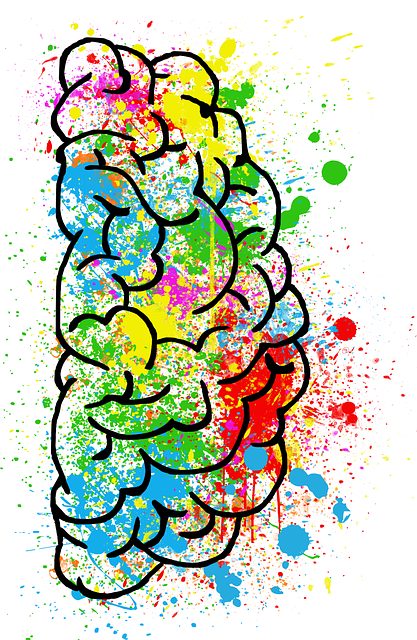Anxiety treatment for specific phobias involves a multi-faceted approach combining evidence-backed therapies like Cognitive Behavioral Therapy (CBT) and exposure therapy, which help individuals challenge negative thought patterns and confront fears in a controlled environment. Mindfulness practices, meditation, virtual reality (VR), medication, support groups, and lifestyle changes also play crucial roles in managing anxiety associated with phobias. Effective anxiety treatment empowers individuals to overcome their fears, reduce symptoms over time, and improve overall well-being.
Phobias, specific and intense fears, can significantly impact daily life. This article explores comprehensive anxiety treatments tailored to address phobia-related disorders. From evidence-based therapies like Cognitive Behavioral Therapy (CBT) and Exposure Therapy to alternative approaches like virtual reality and mindfulness practices, we delve into effective strategies. Additionally, we discuss the role of medication, support groups, lifestyle adjustments, and more, providing a holistic guide for managing and overcoming specific phobias.
Understanding Phobias: Unveiling the Root of Specific Fears

Phobias are intense, irrational fears triggered by specific objects or situations that, in reality, pose little to no danger. Understanding the root causes of these specific fears is a crucial step in effective anxiety treatment. Many phobias develop as a result of traumatic experiences or conditioning, where an individual associates a neutral situation with fear. Over time, this association becomes automatic, leading to disproportionate anxiety when confronted with the trigger.
By delving into the underlying factors, therapists can help patients challenge these negative associations and reshape their emotional responses. Anxiety treatment for phobias often involves exposure therapy, where individuals gradually face their fears in a controlled environment. This process enables them to learn that the feared object or situation is not as menacing as their minds have led them to believe, thus reducing anxiety over time.
Cognitive Behavioral Therapy (CBT): A Powerful Tool for Anxiety Reduction

Cognitive Behavioral Therapy (CBT) is a highly effective and evidence-based approach to managing specific phobias and related anxiety disorders. This therapy focuses on identifying and changing unhelpful thought patterns and behaviors that contribute to fear and anxiety. By challenging negative thoughts and beliefs, CBT enables individuals to develop healthier coping mechanisms and face their fears in a safe and controlled manner.
Through structured sessions, CBT helps patients understand the connection between their thoughts, feelings, and behaviors. It encourages them to replace maladaptive thinking with more realistic and positive interpretations, thereby reducing anxiety symptoms. This therapeutic method has shown remarkable success in treating various phobias, such as arachnophobia (fear of spiders) or acrophobia (height fear), by gradually exposing individuals to their feared stimuli while providing tools to manage and overcome the associated panic responses.
Exposure Therapy: Facing Fear Head-On

Exposure therapy is a powerful technique within the realm of anxiety treatment, specifically tailored to address phobias and intense fears. This approach involves gradually exposing individuals to their feared objects or situations in a controlled and safe environment. By facing their fear head-on, patients learn to manage and reduce the overwhelming anxiety responses they experience.
The process begins with identifying specific triggers and creating a hierarchical list of anxiety-provoking scenarios. Therapy sessions then progress step by step, starting from less intimidating situations and moving towards more challenging ones. This method allows individuals to confront their fears, realize that their worst-case scenarios rarely materialize, and gradually build resilience. Over time, exposure therapy empowers patients to take control, enabling them to face their phobias with diminished anxiety and an enhanced sense of empowerment.
Mindfulness and Meditation: Calming the Anxious Mind

Mindfulness and meditation have emerged as powerful tools in the arsenal of anxiety treatments, offering a calm and focused approach to managing phobia-specific anxiety. By training the mind to be present in the moment, these practices can help individuals detach from anxious thoughts and feelings. Through regular practice, one can learn to observe their thoughts without judgment, fostering a sense of detachment from negative thought patterns associated with fear and phobias.
Meditation encourages relaxation by slowing down mental activity, which can be particularly effective for those dealing with heightened anxiety levels. This process allows individuals to cultivate a deeper understanding of their anxious responses and gain control over their reactions. Mindfulness practices have been shown to reduce symptoms of various anxiety disorders, providing a natural and accessible way to enhance traditional therapy and improve overall well-being.
Virtual Reality: A Modern Approach to Treatment

Virtual reality (VR) is emerging as a powerful tool in the arsenal of anxiety treatments, offering a modern and immersive approach to phobia-specific therapy. This cutting-edge technology creates simulated environments that allow patients to confront their fears in a controlled and safe setting. By stepping into these virtual scenarios, individuals can learn to manage and overcome their anxiety responses, providing them with valuable coping skills for real-life situations.
The beauty of VR lies in its ability to customize and tailor the treatment experience to each individual’s specific phobia. Therapists can design immersive environments that gradually expose patients to their fears, starting from mild triggers and progressively increasing intensity. This gradual exposure therapy has proven effective in reducing anxiety symptoms over time, offering a more comfortable and potentially faster path to recovery compared to traditional methods.
Medication Options for Phobia-Related Anxiety

Medication can play a significant role in managing phobia-related anxiety, offering relief from intense symptoms and helping individuals face their fears. Selective Serotonin Reuptake Inhibitors (SSRIs) are commonly prescribed as they have been proven effective in treating various types of anxiety disorders, including specific phobias. These medications work by increasing the levels of serotonin, a neurotransmitter that regulates mood and emotions, leading to a calmer state. Another type of drug, called beta-blockers, can provide rapid relief from anxiety symptoms during exposure therapy or stressful situations. They are especially useful for short-term management, allowing individuals to cope with intense fear and panic attacks.
When considering medication, it’s crucial to consult a healthcare professional who can assess the specific phobia and recommend the most suitable treatment. Each individual may respond differently to medications, and finding the right balance often involves trial and error. Additionally, therapy is typically combined with medication for better long-term results, as it teaches individuals coping strategies and addresses the underlying causes of their phobias.
Support Groups and Community: The Power of Connection

Support groups and community play a pivotal role in phobia-specific anxiety treatments, offering individuals a powerful tool to combat their fears. Connecting with others who share similar experiences provides a sense of belonging and understanding, breaking down the isolation often associated with phobias. These groups create a safe space where members can openly discuss their struggles, exchange coping strategies, and offer mutual encouragement.
The power of connection extends beyond individual support; it fosters a community that amplifies the effects of anxiety treatment. By participating in these groups, individuals gain valuable insights from diverse perspectives, learn effective techniques to manage their phobias, and develop lasting friendships. This collective approach not only enhances the overall effectiveness of anxiety treatment but also provides ongoing support, ensuring individuals feel empowered to face their fears with resilience.
Lifestyle Changes for Better Mental Health

Making lifestyle changes can significantly contribute to managing and reducing anxiety associated with specific phobias. Incorporating regular physical activity, such as aerobic exercises or yoga, into your routine can help lower stress levels and improve overall mental well-being. Research indicates that these activities stimulate the release of endorphins, often referred to as ‘feel-good’ hormones, which can enhance mood and reduce anxiety symptoms.
Additionally, cultivating a balanced diet and maintaining proper hydration are essential for optimal brain function and emotional regulation. Avoiding excessive caffeine and alcohol consumption can also help manage anxiety, as these substances can exacerbate feelings of fear and panic. Instead, opt for relaxation techniques like meditation or deep breathing exercises, which have been proven effective in calming the mind and body.
